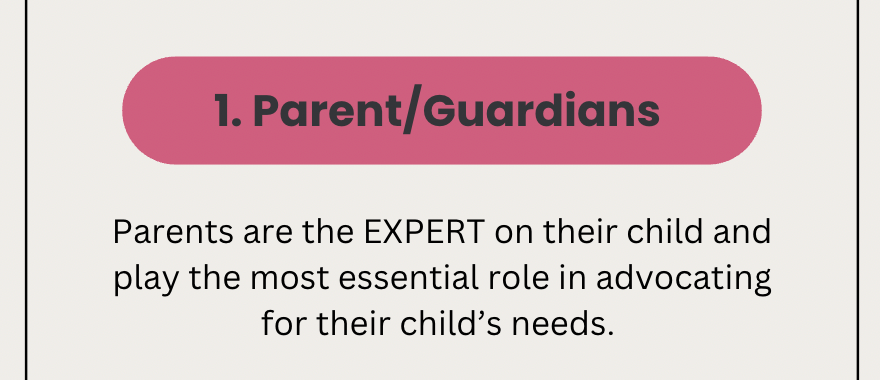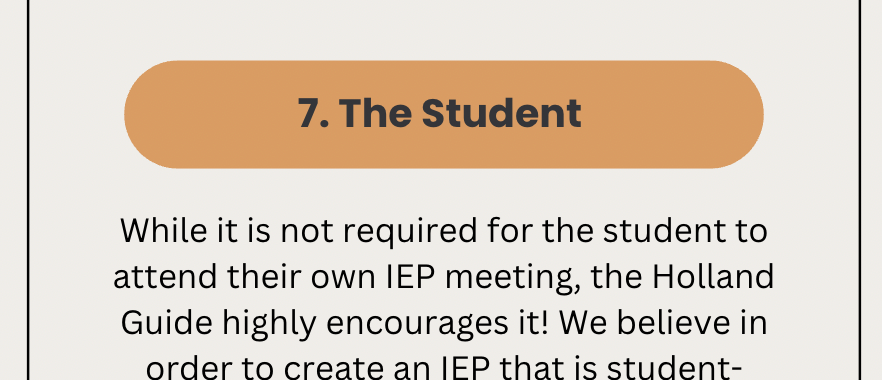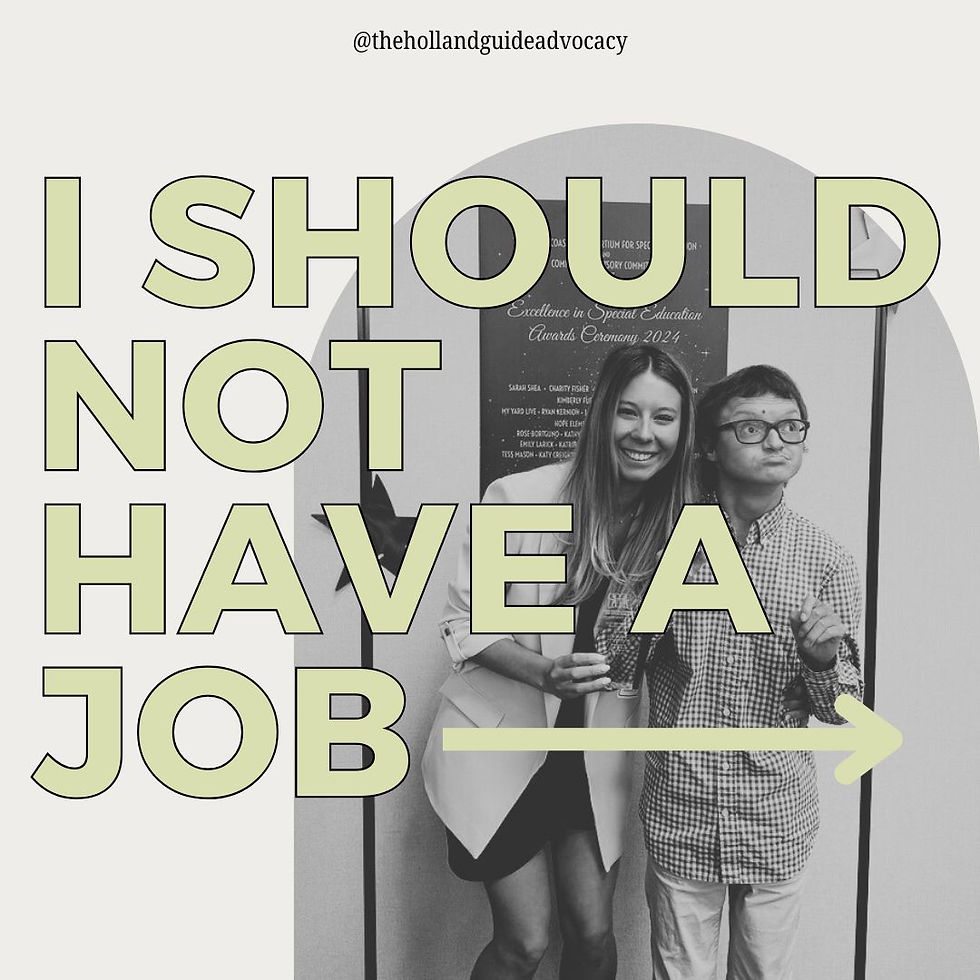7 People Who Should Be at Your Child’s Next IEP Meeting
- Sarah Singleton

- Aug 10, 2025
- 3 min read
If you’re preparing for an IEP meeting, you might be wondering who really needs to be there. Knowing the players can feel overwhelming but it’s one of the best ways to feel confident and prepared going in. Over the years working with families, I’ve seen how each member of the IEP team brings a unique piece of the puzzle to ensure your child gets the supports they need. Here are the 7 people who should absolutely be at your child’s next IEP meeting and why.
1. You — The Parent or Guardian
You are the expert on your child. No one knows them better than you. Your voice is the heart of the meeting, and your advocacy is the driving force behind a meaningful, personalized plan.
Can the IEP team have a meeting without you?
In most cases, no. The law (IDEA) says the school must make reasonable efforts to include you such as offering alternative meeting times, phone or video options, and documenting every attempt to reach you. If they can’t get you there after multiple tries, they may hold the meeting, but they still must share everything with you afterward.
2. The Special Education Teacher
This is the team member who often works most closely with your child’s learning and progress in specialized instruction. IDEA requires that at least one special education teacher or provider be at the meeting to share insights and recommendations.
3. The General Education Teacher
Even if your child spends nearly all their time in special education classes, a general education teacher should usually be there. Why? Because the law requires their presence if your child is or may be participating in any general education environment whether that’s lunch, PE, art, or a school event. Their role is to share how your child can access and progress in the general curriculum and suggest accommodations or supports.
If your school says a general education teacher isn’t needed, you can remind them of the federal rule 34 C.F.R. § 300.321(a)(2).
4. School Psychologist
A school psychologist or someone qualified to interpret assessments should attend when your child’s evaluations are being reviewed. Their expertise helps translate test results into educational recommendations. Their presence is only required when assessments are being reviewed (triennial and initial IEP meetings).
5. Specialists
If your child receives therapies or specialized services ( think speech therapy, occupational therapy, physical therapy, behavioral support, or even music therapy) those providers should be part of the meeting. They bring valuable knowledge about your child’s strengths and needs in their specific areas.
6. School Administrator or LEA Representative
This person represents the school district and has the authority to commit resources. Whether it’s approving funding, services, or staffing, having a decision-maker at the table means your child’s needs can be addressed promptly and realistically. Typically this is a principal or special education director.
7. The Student
While not legally required, I highly encourage students to attend their own IEP meetings whenever possible. Involving your child helps build self-advocacy skills and ensures the plan is truly centered on their goals and dreams. After all, it’s their education!
Quick Tips for Parents
Before holding an IEP meeting without a parent, schools must document all attempts to find a time that works for you.
Parents and districts can agree in writing if a team member doesn’t need to attend because their area isn’t being discussed.
You have the right to invite anyone you think will help support your child—but be ready to explain how that person’s expertise is relevant.
You can record your child’s IEP meeting as long as you give the school 24 hours’ notice.
Knowing who should be at the table helps you feel empowered, ask the right questions, and make sure your child’s team has the expertise to support their success.






















Comments